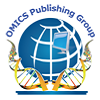Our Group organises 3000+ Global Conferenceseries Events every year across USA, Europe & Asia with support from 1000 more scientific Societies and Publishes 700+ Open Access Journals which contains over 50000 eminent personalities, reputed scientists as editorial board members.
Open Access Journals gaining more Readers and Citations
700 Journals and 15,000,000 Readers Each Journal is getting 25,000+ Readers
Indexed In
- Google Scholar
- RefSeek
- Hamdard University
Useful Links
Share This Page
Addressing anisotropy of tissues regeneration in the implants design
Mark Pitkin
Abstract
Anisotropy is a fundamental characteristic of tissues regeneration replicating those in the tissues development. If design of an implant is not addressing it properly, the long-term bond between implant and the hosting tissues can-not be sustainable neither in total joint replacement, nor in direct skeletal attachment (DSA) of limb prostheses. Advantages in utilizing anisotropy of regeneration were demonstrated by preferred properties and orientation of the components of the Skin and Bone Integrated Pylon (SBIP) developed by Poly-Orth International, Sharon, MA. Besides optimizing porosity, pores size, particle size and volume fraction, we improved skin-implant and bone-implant interface via preferred orientation of the pylons├ó┬?┬? parts. Skin-implant interface: The SBIP is deeply porous perpendicular to the implant├ó┬?┬?s longitudinal axis and also has perforations in the solid enforcing inserts. Skin cells can therefore penetrate the structure and grow throughout the entire volume of the implant in the ├ó┬?┬?natural├ó┬?┬Ł anisotropic direction of regeneration. That creates a skin seal, thus addressing the principal failure modes in existing percutaneous devices: skin regression, marsupialization, permigration, and avulsion. Bone-implant interface: Bone loss after implantation to the marrow canal is observed, and is caused by shield stresses. A variant of the SBIP and a new method of fixation are addressing this problem. Our SBIP-F pylon has side fins that are inserted into precut slots inside the cortical bone walls. The cut out bone activates an Ilizarov type distractional osteogenesis in which the regenerated bone has greater strength than the original bone.Biography
Mark Pitkin has completed his PhD in Biomechanics at the Central Institute of Prosthetics Research in Moscow, Russia. He is Professor of Physical Medicine and Rehabilitation at the Tufts University School of Medicine, Boston, MA.

 Spanish
Spanish  Chinese
Chinese  Russian
Russian  German
German  French
French  Japanese
Japanese  Portuguese
Portuguese  Hindi
Hindi